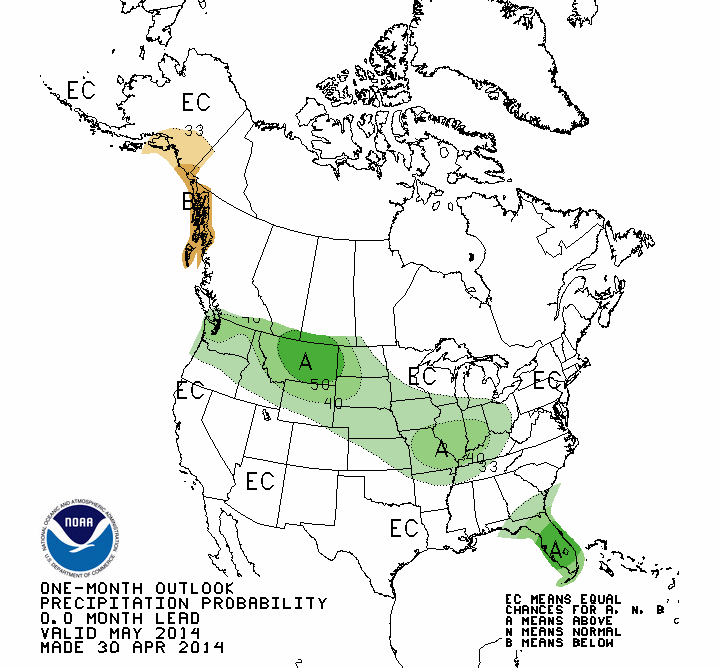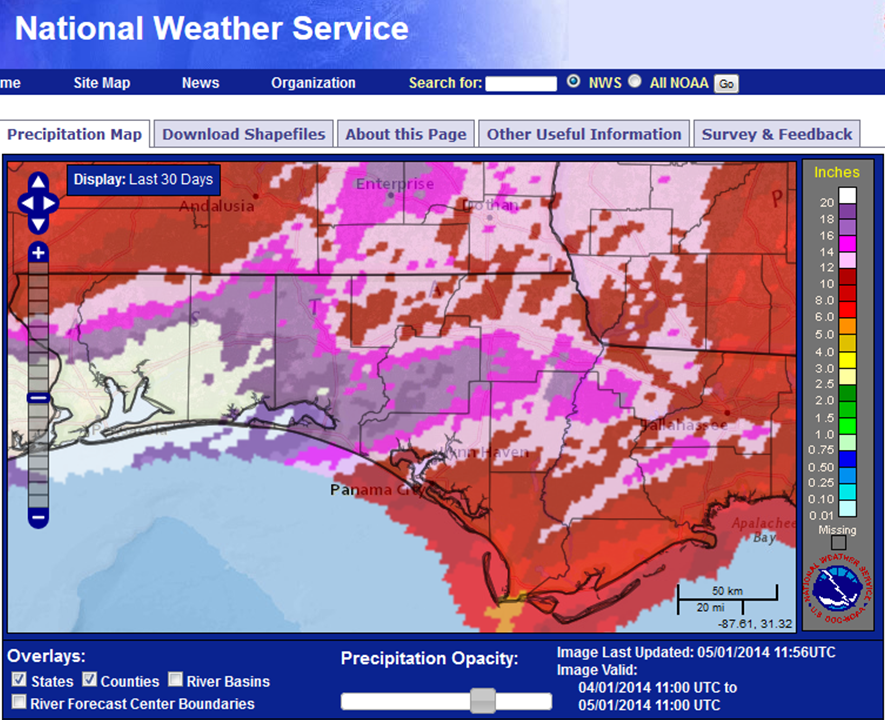
If the old adage about April Showers bringing May Flowers holds true, the Florida Panhandle will become a beekeeper’s paradise in 2014. Intensive, heavy rains set records all across the Panhandle for the month of April. Terrible flooding occurred at the end of the month along the coastal region of the Western Panhandle. Most of the agricultural regions of the Panhandle did not experience the serious flooding issues, but are still dealing with washed out roads, minor flooding and very saturated fields.
The FAWN weather station at Carrabelle collected the lowest April rainfall with 7.1″, the wettest location by far was DeFuniak Springs which recorded 19.1″ for the month. The average across all six locations was 13.5″, which was well above the average of 3-5″ that normally falls in April across the Panhandle.
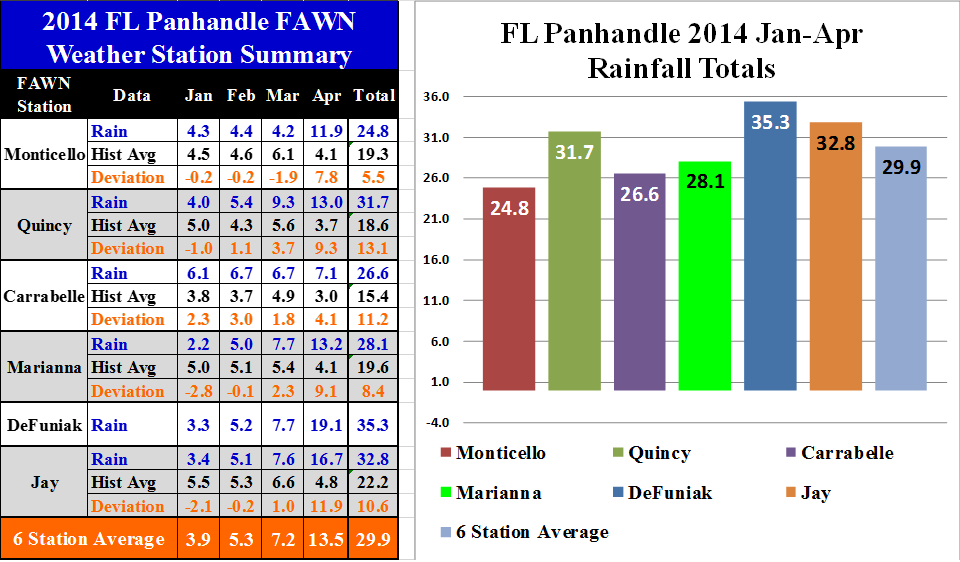
Not only was April wet, but also abnormally cool. Average soil temperatures did not climb above 65 degrees this year until April 24th. Multiple cold fronts and extended cloudy, rainy weather kept soil temperatures from reaching the optimal growing temperatures for cotton and peanuts.
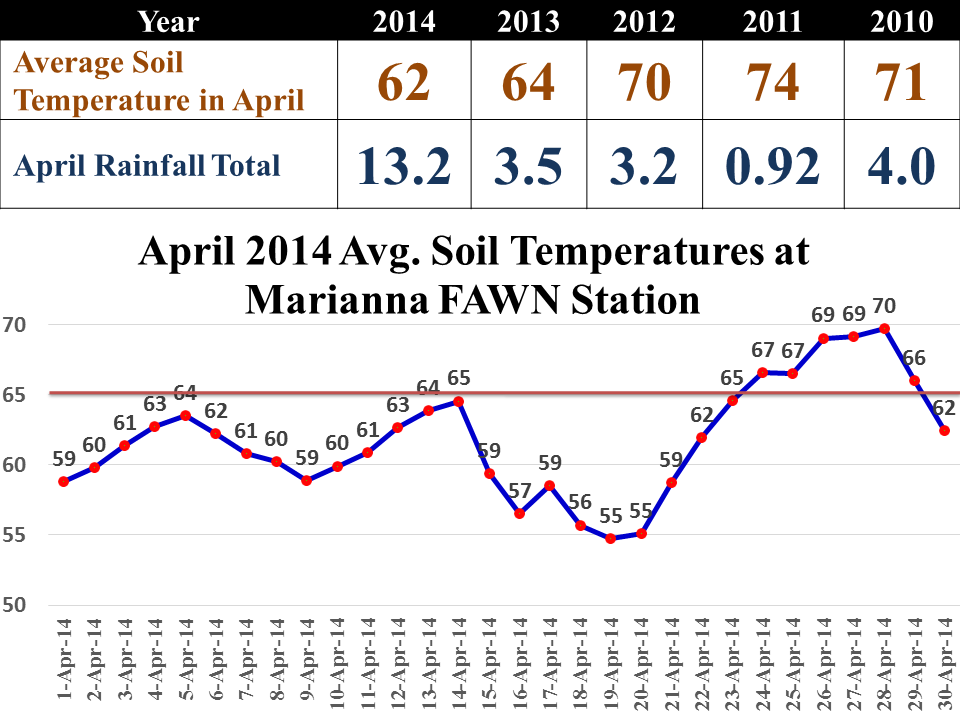
The weather summary from the Marianna FAWN Station shows the extremes that came in April 2014. Air temperatures ranged from the low of 39 degrees on April 16th to the high of 87 degrees on April 28th. The 13.2” recorded in April 2014 by the University of Florida FAWN Weather station was the most ever recorded in the 62 years of rainfall records kept at that location. The previous record, since they started keeping records in 1952, was 10.4” back in 1975. 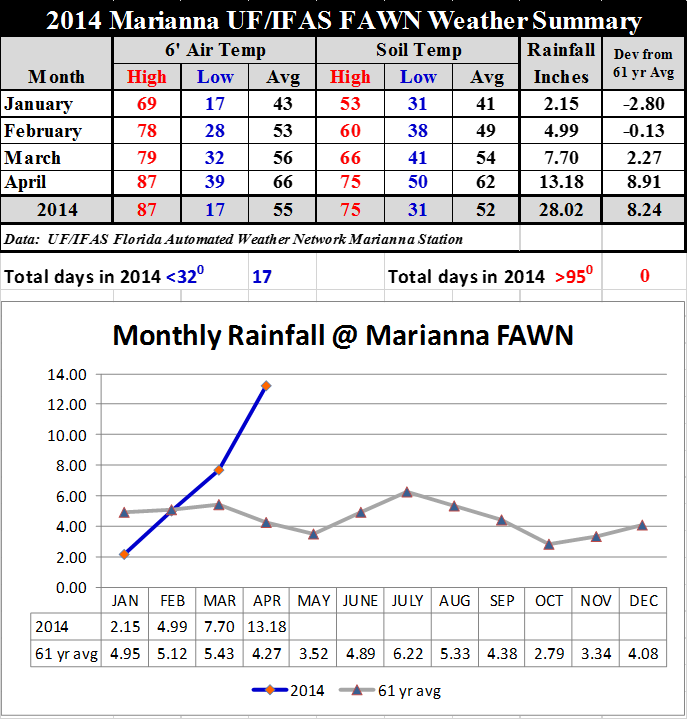 Of course the question that is on every farmer’s mind is, what the weather will be like in May. NOAA is forecasting above average rainfall for May in the central Panhandle, but not the western region. May is typically one of the driest months of the year, so this forecast does not necessarily mean more of the excessive rainfall, but at least the continued trend of above average.
Of course the question that is on every farmer’s mind is, what the weather will be like in May. NOAA is forecasting above average rainfall for May in the central Panhandle, but not the western region. May is typically one of the driest months of the year, so this forecast does not necessarily mean more of the excessive rainfall, but at least the continued trend of above average.
 0
0
